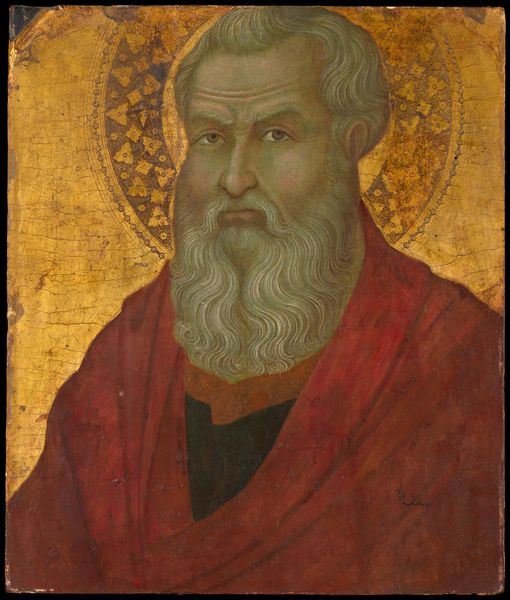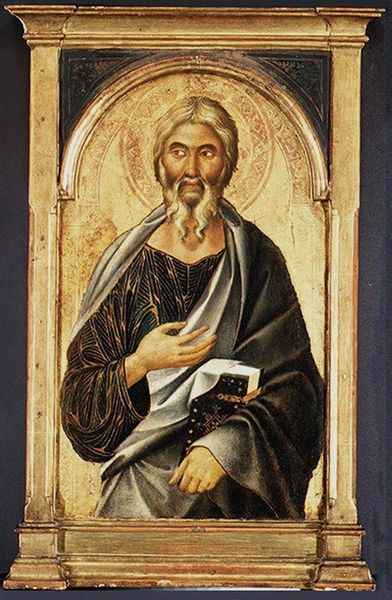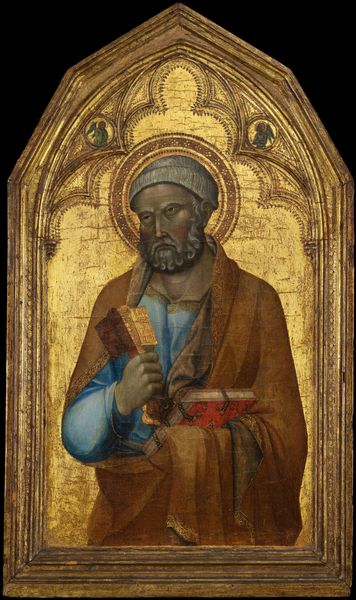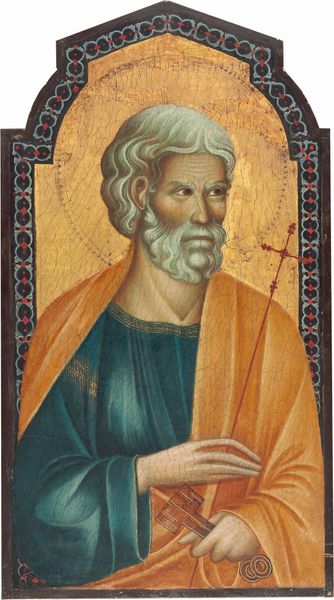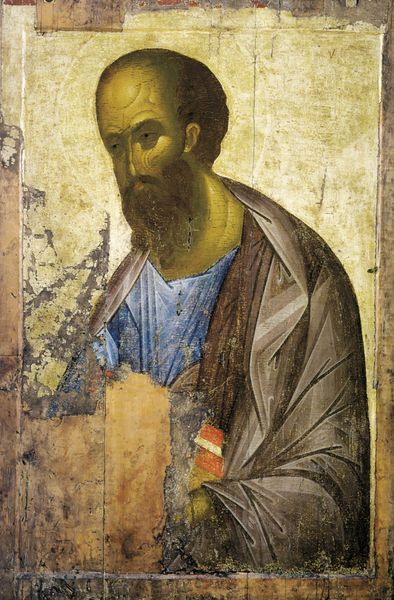
fresco
#
portrait
#
medieval
#
fresco
#
italian-renaissance
Copyright: Public domain
This is Fra Angelico’s 'St Romuald,' a detail from a larger fresco painting of the Crucifixion, created around the 15th century. Fresco is a demanding technique, requiring the artist to paint directly onto wet plaster, a process that bonds the pigments into the wall as it dries. The surface we see here is the result of skilled labor and material knowledge. The vivid gold halo, likely achieved with delicate applications of gold leaf, contrasts with the more muted tones of St. Romuald's face and habit. You can see the artist's command of the medium in the subtle modeling of the saint's features and the flowing lines of his beard. The fresco technique itself, with its inherent limitations and the need for swift, decisive execution, speaks to a deep understanding of material behavior. Each brushstroke, each layer of pigment, had to be applied with precision, reflecting the cultural and aesthetic values of Renaissance art. By appreciating the labor and material intelligence embedded in this artwork, we can move beyond conventional art history, and recognize its connections to the wider world of making.
Comments
No comments
Be the first to comment and join the conversation on the ultimate creative platform.






